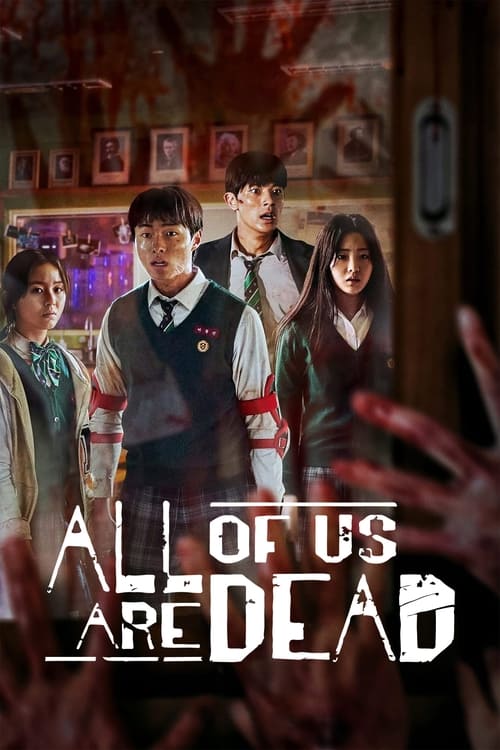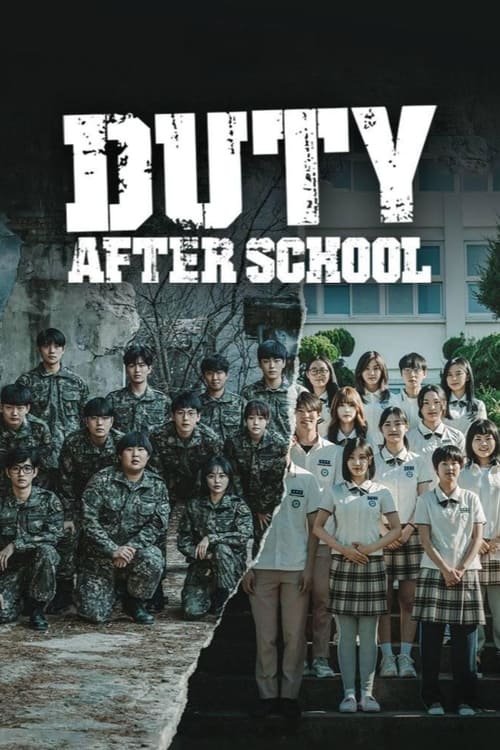
Ask Your Own Question
What is the plot?
In the opening scene of "Dwindling Water," the residents of the apartment complex are grappling with the aftermath of the water crisis that has been escalating throughout the series. The camera pans through the hallways, showing people filling buckets and containers with the last remaining drops of water from communal taps. Tension is palpable as neighbors argue over limited resources, highlighting the desperation that has taken hold of the community.
As the episode progresses, we focus on the character of Ji-soo, who is increasingly anxious about the dwindling water supply. She is seen pacing in her apartment, her brow furrowed with worry. Ji-soo's internal conflict is evident as she contemplates whether to confront the building management about the situation. Her motivation stems from a desire to protect her family and ensure they have enough water to survive. Eventually, she decides to gather a group of residents to voice their concerns collectively.
Meanwhile, we shift to the character of Seung-jae, who is dealing with his own issues. He is shown in a flashback, reflecting on his past decisions that have led him to this point. The weight of his choices hangs heavily on him, and he feels a sense of guilt for not being able to provide for his family. This internal struggle drives him to take action, and he resolves to find a solution to the water crisis, even if it means taking risks.
In a pivotal scene, Ji-soo organizes a meeting in the common area of the building. Residents gather, their faces a mix of fear and determination. Ji-soo passionately speaks about the need for unity and action, urging everyone to demand better management from the building's owners. The atmosphere is charged with emotion as people share their own experiences and fears. This moment serves as a turning point, as the community begins to rally together, igniting a sense of solidarity.
As the night falls, tensions rise when a group of residents confronts the building manager, demanding answers about the water shortage. The manager, visibly defensive, tries to downplay the situation, claiming that the issue is temporary. However, the residents are not satisfied with this response. Seung-jae steps forward, challenging the manager's authority and insisting on immediate action. The confrontation escalates, and the manager ultimately agrees to investigate the issue further, but only after being pressured by the group.
The next day, Ji-soo and Seung-jae take it upon themselves to investigate the water supply issue. They venture out into the city, searching for any leads on where the water might be coming from. Their journey is fraught with obstacles, including blocked roads and hostile encounters with other desperate residents. During this time, Ji-soo and Seung-jae bond over their shared mission, revealing their vulnerabilities and fears. This connection deepens their relationship, adding an emotional layer to their quest.
Back at the apartment complex, the situation worsens as the water supply dwindles even further. Residents begin to panic, and some resort to desperate measures, such as hoarding water or stealing from neighbors. The atmosphere becomes increasingly hostile, and the community that once seemed united begins to fracture. Ji-soo and Seung-jae return to find chaos, and they realize that their efforts to bring the community together are slipping away.
In a climactic moment, Ji-soo confronts a neighbor who has been hoarding water, leading to a heated argument. This confrontation serves as a microcosm of the larger issues at play within the community. Ji-soo's frustration boils over, and she pleads with her neighbors to remember their shared humanity. This emotional appeal resonates with some, reigniting the spirit of cooperation among a few residents.
As the episode nears its conclusion, Ji-soo and Seung-jae receive a tip about a potential water source nearby. They quickly gather a small group of residents willing to help. The team sets out on a mission to access this new source, facing physical challenges and emotional turmoil along the way. The journey is fraught with tension, as they navigate through difficult terrain and confront their own fears.
The episode ends on a cliffhanger as the group finally reaches the water source, only to find it heavily guarded by another group of desperate residents. A standoff ensues, leaving the fate of the water supply uncertain. The screen fades to black, leaving viewers anxious about the outcome of this confrontation and the future of the community.
What is the ending?
In the ending of "Happiness," season 1, episode 9 titled "Dwindling Water," the characters face the consequences of their actions as the water crisis escalates. The episode concludes with a sense of despair and uncertainty, particularly for the residents of the apartment complex, as they grapple with the reality of their dwindling resources and the impact on their relationships.
As the episode unfolds, the tension builds around the water shortage that has been plaguing the community. The residents are increasingly desperate, leading to conflicts and confrontations. The main characters, including the residents of the apartment complex, are forced to confront their own fears and insecurities as they navigate the crisis.
The episode culminates in a series of emotional confrontations. The characters are pushed to their limits, revealing their true selves in the face of adversity. The fate of each character is intertwined with the overarching theme of survival and the fragility of human connections.
In the final scenes, the community's struggle for water becomes a metaphor for their emotional and relational struggles. The episode ends on a somber note, leaving the audience with a lingering sense of uncertainty about the future of the characters and their relationships.
As the episode "Dwindling Water" begins, the camera pans over the apartment complex, showcasing the growing tension among the residents. The water crisis has reached a critical point, and the once vibrant community is now filled with anxiety and fear. The residents gather in the common area, their faces etched with worry as they discuss the dwindling water supply.
The scene shifts to the main characters, who are grappling with their own personal issues amidst the chaos. One character, feeling the weight of responsibility, tries to rally the others to come together and find a solution. However, the desperation in the air leads to heated arguments, revealing deep-seated resentments and fears.
As the day progresses, the situation worsens. The residents begin to hoard water, leading to further conflict. A pivotal moment occurs when two characters confront each other over the last remaining bottles of water. The confrontation escalates, showcasing the breakdown of trust and community spirit. The emotional stakes are high, and the audience can feel the tension crackling in the air.
In a quieter moment, one character reflects on their past decisions, feeling regret for how they have treated others. This introspection highlights the internal struggles that each character faces, as they are forced to confront their own shortcomings in the face of a crisis.
As night falls, the atmosphere becomes even more charged. The residents gather for a meeting, hoping to devise a plan to cope with the water shortage. However, the meeting quickly devolves into chaos as accusations fly and alliances shift. The camera captures the raw emotions on display--fear, anger, and desperation--as the characters realize that their survival may depend on their ability to work together.
In the final scenes, the characters are left to face the consequences of their actions. The water crisis has not only affected their physical well-being but has also strained their relationships to the breaking point. The episode closes with a haunting image of the apartment complex, now a shadow of its former self, as the residents grapple with the reality of their situation. The screen fades to black, leaving the audience with a sense of unresolved tension and uncertainty about the future of the characters and their community.
Is there a post-credit scene?
In the episode "Dwindling Water" of the show Happiness, there is no post-credit scene. The episode concludes without any additional scenes or content after the credits roll. The focus remains on the main narrative and character developments throughout the episode, leaving no lingering moments or teasers for future events.
What challenges do the residents face due to the dwindling water supply?
In episode 9, the residents of the apartment complex grapple with the severe water shortage that threatens their daily lives. Tensions rise as they struggle to manage their limited resources, leading to conflicts among neighbors and highlighting the desperation of their situation.
How does the water crisis affect the relationship between the main characters?
The dwindling water supply exacerbates existing tensions between the main characters, particularly between the protagonist and their neighbor. As they confront the reality of their situation, their differing approaches to survival create friction, revealing deeper emotional struggles and vulnerabilities.
What actions do the characters take to cope with the water shortage?
In this episode, characters resort to various strategies to cope with the water crisis, including rationing their water usage, seeking alternative sources, and forming alliances with other residents. These actions reflect their desperation and the lengths they are willing to go to secure their basic needs.
How does the episode explore the theme of community during the water crisis?
The episode delves into the theme of community as residents band together to address the water shortage. They hold meetings to discuss solutions, share resources, and support one another, showcasing both the strength and fragility of their relationships in times of crisis.
What emotional toll does the water crisis take on the characters?
The emotional toll of the water crisis is palpable, with characters experiencing anxiety, fear, and frustration. The stress of the situation leads to moments of vulnerability, as they confront their fears of scarcity and the potential breakdown of their community.
Is this family friendly?
In "Dwindling Water," episode 9 of "Happiness," there are several elements that may be considered objectionable or upsetting for children or sensitive viewers.
-
Tension and Conflict: The episode features heightened emotional tension among characters, which may be intense for younger viewers. The conflicts often revolve around survival and interpersonal relationships, leading to moments of distress.
-
Themes of Isolation and Desperation: The characters experience feelings of isolation and desperation due to dwindling resources, which can evoke anxiety and fear.
-
Violence and Threats: There are scenes that include threats of violence or aggressive confrontations, which may be unsettling for sensitive viewers.
-
Emotional Distress: Characters grapple with fear, loss, and uncertainty, leading to emotional breakdowns that could be distressing.
-
Mature Themes: The episode explores themes of survival, morality, and the human condition in extreme circumstances, which may be complex and difficult for younger audiences to fully understand.
These elements contribute to a darker tone in the episode, making it potentially unsuitable for children or those who are sensitive to such themes.








































